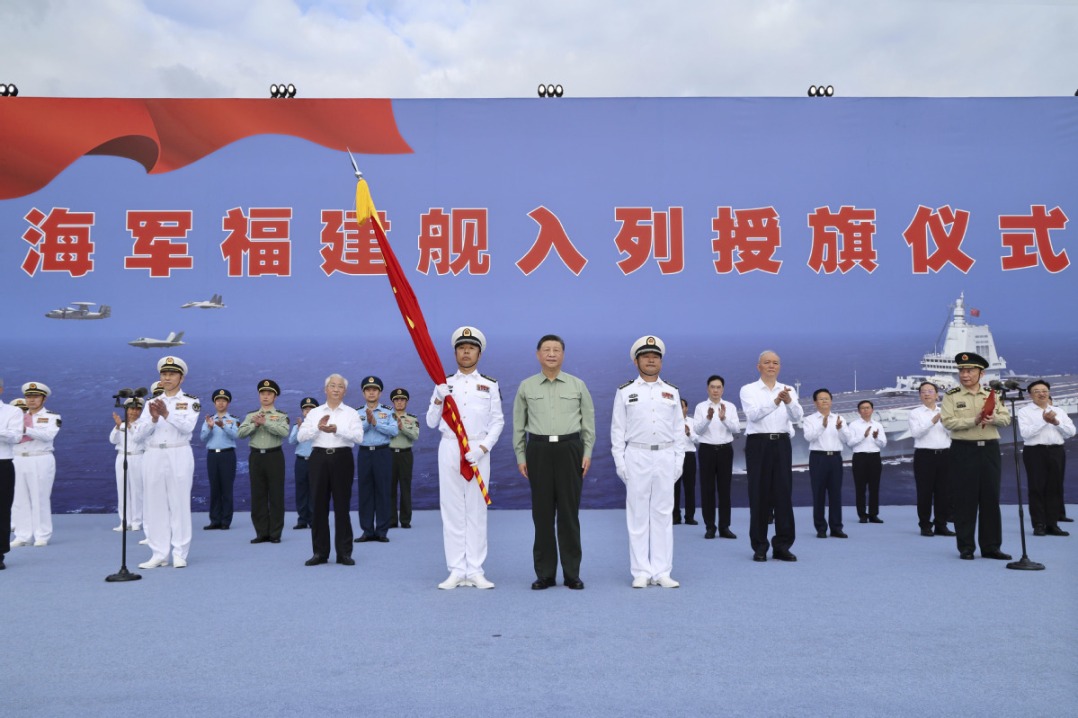Global South countries need to stand in solidarity with China
By Dennis Menune | China Daily Global | Updated: 2024-06-20 09:10

China, a gentle giant which has helped the economic transformation of several countries in the Global South such as Kenya, is under attack.
The swearing-in of Lai Ching-te as Taiwan's so-called "new president" on May 20 violates Resolution 2758 adopted by the United Nations General Assembly on October 25, 1971, on restoring all the rights of the People's Republic of China in the UN. There is but one China in the world, Taiwan is an inalienable part of China, and the government of the People's Republic of China is the sole legal government representing the whole of China.
Separatist forces in Taiwan are backed by some Western-led powers, which are determined to undermine the one-China principle that has benefited many countries in the Global South to advance their own path to modernization, ushering in a new epoch of the 21st century Cold War geopolitics.
The vicious attack on China's peaceful rise and its quest to unite its people to build a community with a shared future for all is well documented in the 2022 National Security Strategy released by United States President Joe Biden's administration, which categorically states that the People's Republic of China is "the only competitor with both the intent to reshape the international order and, increasingly, the economic, diplomatic, military, and technological power to do it".
Setting stage for the Biden administration's anti-China strategy and containment measures was the August 2022 visit of then US House speaker Nancy Pelosi to the Taiwan island. The visit was in outright contravention of both the August 17, 1982, China-US communique and the one-China principle — policies that acknowledge Taiwan as an inseparable part of China.
Mark Lambert, US deputy assistant secretary of state in the Bureau of East Asian and Pacific Affairs and China coordinator, recently said that "Resolution 2758 does not endorse, equate to, or reflect an international consensus on the one-China principle, and has no bearing on countries' sovereignty choices with respect to their relationships with Taiwan".
Lambert's statement is a misinterpretation of Resolution 2758, and sets the stage for anarchy in Taiwan with an aim to undermine the one-China principle.
Peace-loving nations, especially those in the Global South, need to stand in solidarity with China and ensure its one-China principle is protected at all costs.
The peaceful reunification of China will not harm the legitimate interests of any other country. On the contrary, it will bring more development opportunities through the offer of global public goods to all civilizations.
For over half a century, China has adhered to the Five Principles of Peaceful Coexistence, which are mutual respect for sovereignty and territorial integrity, mutual non-aggression, non-interference in each other's internal affairs, equality and mutual benefit, and peaceful coexistence.
China has also provided global public goods such as the Belt and Road Initiative, the Global Security Initiative and the Global Development Initiative, among others, which have benefited the Global South.
For instance, China has been Africa's largest trading and infrastructure development partner for 15 consecutive years, with bilateral trade reaching a record $282 billion in 2023.
In Kenya, major infrastructure projects — such as the standard gauge railway, the Nairobi Expressway, the Lamu Port, the new Kipevu Oil Terminal and the Konza Technopolis — have been undertaken by China. These have propelled Kenya into being one of the largest and most advanced economies in East and Central Africa.
China's efforts in financing and developing mega projects in Kenya and other countries in the Global South have made it a target of some Western-led powers. However, a direct attack on China and its sovereignty will have a direct impact on the modernization path of most countries in the Global South, especially those in Africa. This, in turn, will destabilize the global economy.
For China, peace and development are intrinsically linked.
The author is executive director of the China-Africa Center at the Africa Policy Institute.
























